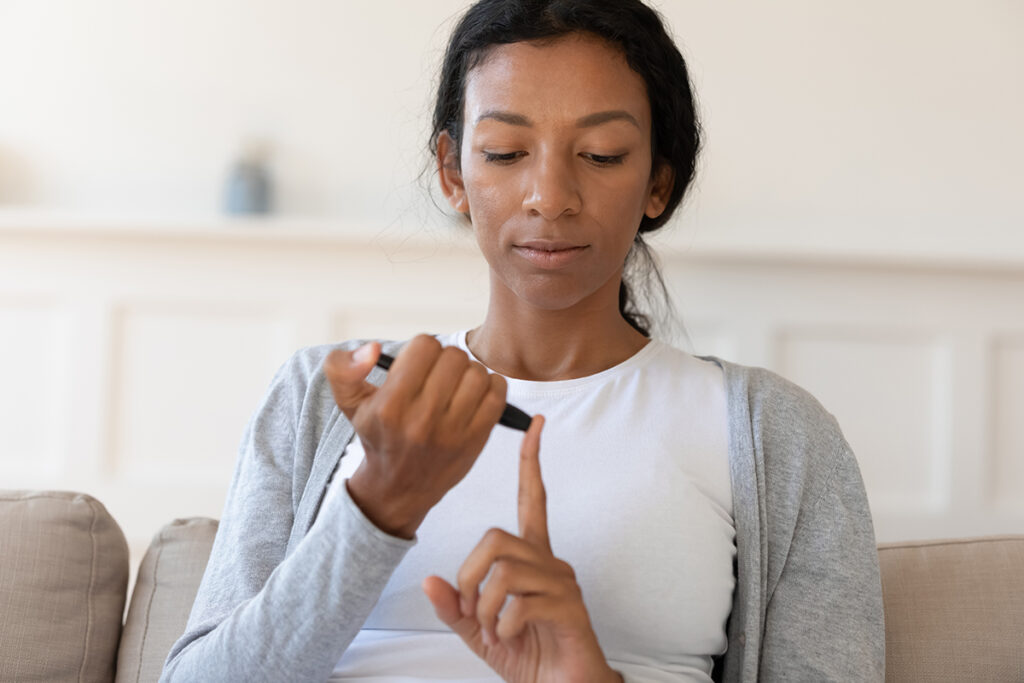If you grew up with Type 1 diabetes, you already know how crucial it is to monitor your blood sugar and be mindful of what and when you eat. In particular, alcohol can worsen some complications associated with diabetes. Even with this knowledge, however, you may still wish to have a drink when getting together with friends or celebrating holidays.
Do you plan to drink alcohol on a special occasion? You must be especially careful, since alcoholic drinks can steeply increase or decrease your blood sugar levels. Here is what you need to know about Type 1 diabetes and alcohol.
Alcohol’s Effects on Type 1 Diabetes
People living with Type 1 diabetes should only drink occasionally and in moderation, and check their blood sugar levels before consuming any alcoholic beverages. Since food slows down the rate at which your bloodstream absorbs alcohol, be sure to eat a snack or a meal with carbohydrates if you plan to drink. Consider alternating between alcohol and water to slow your pace and ensure you are not drinking more than is safe for you.
It’s also wise to ask your doctor about any medications you are taking and whether alcohol might interfere with their effects. Your health provider may also recommend changing your insulin dosage before, during and after drinking alcohol.
Other essential things to remember about Type 1 diabetes and alcohol use include:
- Sugary beverages like wine or mixed drinks with soda contain carbohydrates that may raise your blood sugar. Pay attention to the carb count in your drinks.
- Alcohol stimulates your appetite and lowers inhibitions, which could cause you to overeat or make poor food choices. If you are intoxicated, you are also more likely to take risks such as continuing to drink without monitoring your blood sugar.
- In an emergency, glucagon may be ineffective because your liver is already busy processing the toxins from the alcohol.
- Alcohol can cause flushing, nausea, increased heart rate and slurred speech, all of which may mimic low blood sugar symptoms.
- Always wear a medical alert piece of jewelry that says you have diabetes.
- If you are with friends, let them know how alcohol affects your body. Coach them to ensure they can spot the signs of low blood sugar and know to call 911 immediately.
- If you plan to dance or do any other activities that might increase your heart rate, prepare for a drop in blood sugar.
Know Your Limits, Save Your Life
Alcohol misuse and binge drinking can have severe adverse effects on anyone’s health, but these behaviors are especially risky for people with diabetes, leading to issues such as nerve damage and chronic hypoglycemia. Depending on your condition and how well-controlled your Type 1 diabetes is, your doctor may recommend abstaining from alcohol entirely.
Even when they are aware of the dangers, some people with Type 1 diabetes decide to drink alcohol in excess. For example, co-occurring diabetes and depression might cause you to self-medicate in hopes of finding relief from your symptoms. However, in doing so, you become more vulnerable to developing a substance use disorder in addition to your other health challenges.
If you are struggling with your well-being due to alcohol abuse, speak with your family and your health providers about entering an accredited treatment program. At Canyon Crossing, we help women who need to achieve lasting freedom from addiction. Contact us today to learn more.



